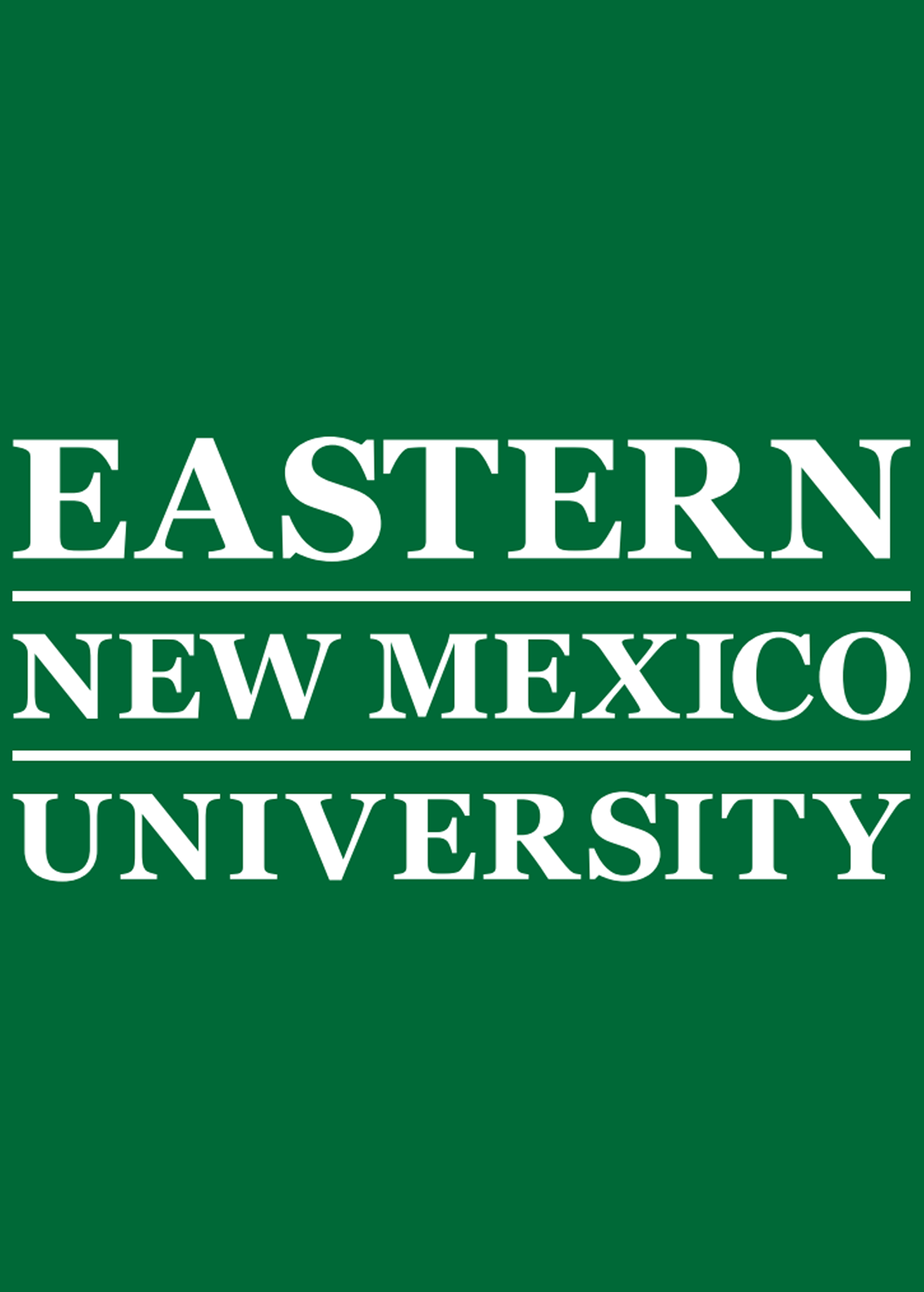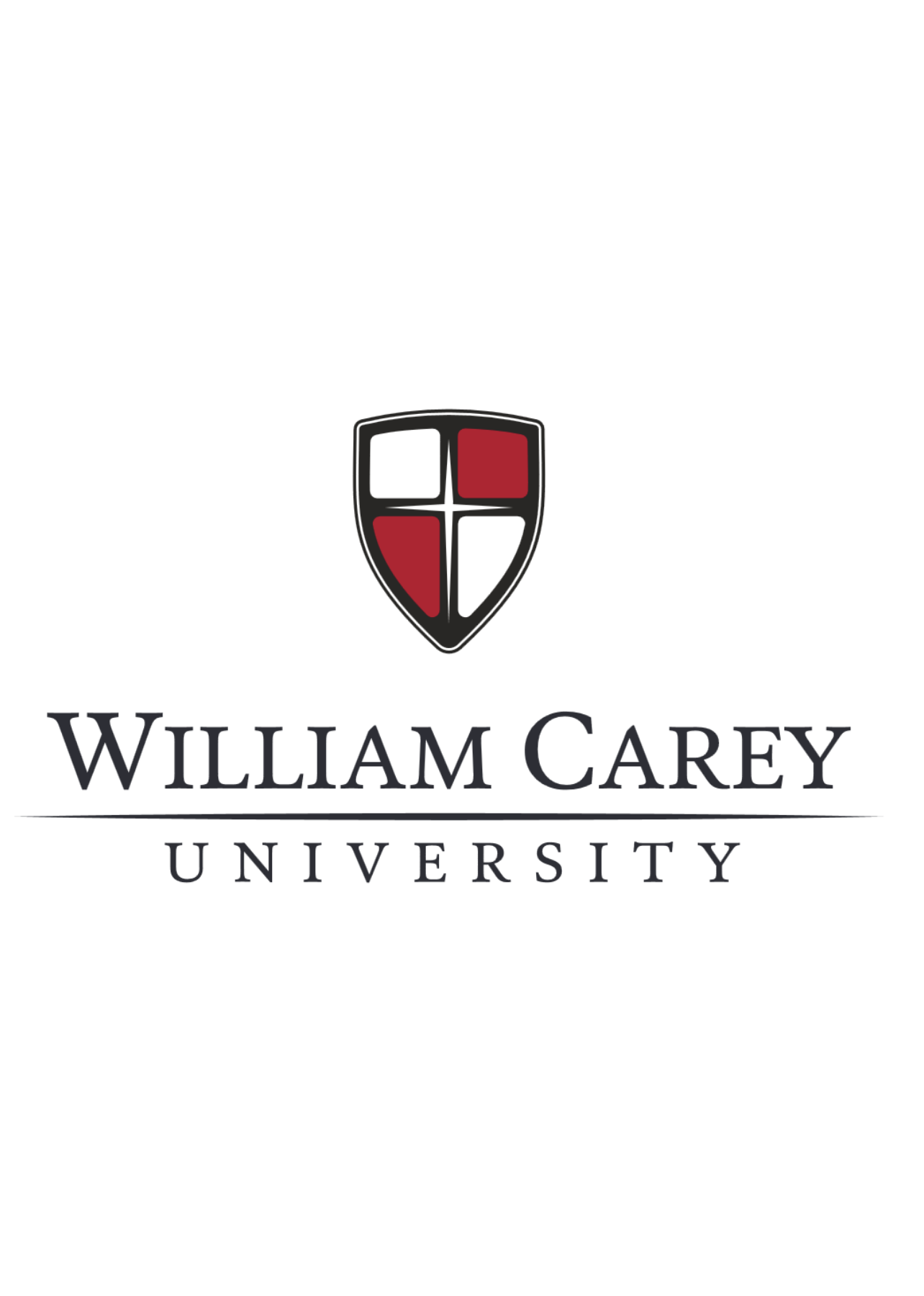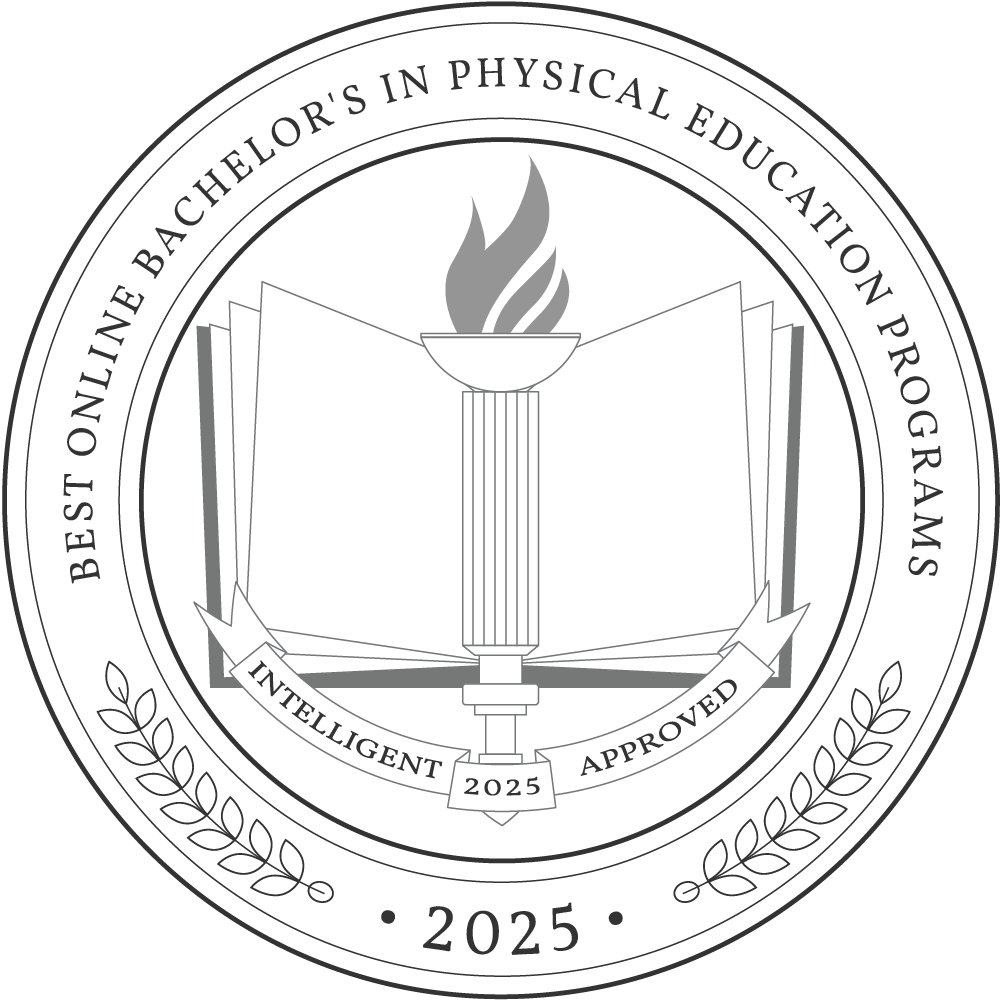Students with a passion for health and fitness that they’d like to share with others can use an online bachelor’s in physical education to work as a fitness trainer or teacher.
This degree incorporates elements of human physiology and development with teaching theory and exercise science so participants can convey fitness and wellness principles to people of all ages, especially young children and teens.
The U.S. Bureau of Labor Statistics (BLS) projects job growth of 14% (much faster than average) for fitness trainers and instructors from 2022 to 2032, with a median annual salary of about $46,000. BLS data also shows that the field of health education specialists is growing by 7% during these years, with a median yearly salary of about $63,000.
An online bachelor’s in physical education requires about 120 credits. Most students complete a bachelor’s degree over four years, but this depends on how many credits you take per semester. As for program cost, the average tuition for an undergraduate degree is $14,688 per year.
Why Trust Us
The Intelligent.com Higher Education Team is dedicated to providing students with independent, equitable school and program rankings and well-researched resources. Our expert-driven articles cover topics related to online colleges and programs, paying for school, and career outlooks. We use data from the U.S. Department of Education’s College Scorecard, the National Center for Education Statistics, and other reputable educational and professional organizations. Our academic advisory team reviews content and verifies accuracy throughout the year for the most current information. Partnerships do not influence rankings or editorial decisions.
- Analyzed over 2,000 national, accredited, and nonprofit colleges and universities
- 800+ rankings pages are reviewed and updated yearly
- Content is informed by reputable sources, surveys, and interviews with academic advisors and other experts
- Over 100 data points are reviewed for accuracy and quality throughout the year, including sources
How we rank schools
Our list features the best online Bachelor’s in Physical Education degree programs at top colleges nationwide. Each school featured is a nonprofit, accredited institution — either public or private — with a high standard of academic quality for post-secondary institutions.
We evaluated each school’s program on tuition costs, admission, retention and graduation rates, faculty, reputation, and the student resources provided for online students. We collected data from trusted sources like the National Center for Education Statistics, individual school and program websites, school admissions counselors, and other data sources. Then, we calculated the Intelligent Score on a scale of 0 to 100 based on the following criterion:
Academic Quality:
- Admission rate versus enrollment rate
- Retention rate of students who return after year one
- Accreditation status (regional and programmatic)
- Nonprofit status, both private and public institutions
Graduation Rate
- Overall graduation rate
- Total number of currently enrolled students, including diversity metrics
- Student-to-faculty ratio
Cost and ROI
- In-state and out-of-state per-credit tuition rates and fees
- Required credits to graduate
- Earning potential after graduation
- Availability of federal student loans, scholarships, and other financial aid options
Student Resources
- Available student services for online-only and hybrid programs
- On-campus amenities like tutoring centers and the number of libraries
Read more about our ranking methodology.
Best 3 Accredited Online Bachelor’s in Physical Education Programs
FiltersInstitution Type
Status
- Intelligent Score
- Alphabetically By University Name
- Acceptance Rate
- Enrollment
- In-state Graduate Tuition
- Out-of-state Graduate Tuition
- In-state Undergraduate Tuition
- Out-of-state Undergraduate Tuition

University of Louisiana at Lafayette
Intelligent Score: 99.18In-state: $5,407
Out-of-state: $19,135
In-state: $5,511
Out-of-state: $5,511
SAT: 1000-1210
ACT: 20-26
$380
Online
Council for the Accreditation of Educator Preparation
120

Eastern New Mexico University
Intelligent Score: 96.25In-state: $4,074
Out-of-state: $6,114
In-state: $5,351
Out-of-state: $5,351
SAT: 950-1160
ACT: 17-23
Resident: $174
Non-Resident: $257
Online, On-Campus, Hybrid
Higher Learning Commission
120

William Carey University
Intelligent Score: 91.39In-state: $12,600
Out-of-state: $12,600
In-state: $11,040
Out-of-state: $11,040
SAT: 1050-1330
ACT: 20-27
$475
Online
Council for the Accreditation of Educator Preparation
128
How to Choose an Online Bachelor’s in Physical Education Degree Program
Choose your area of study
This online degree is usually offered as a Bachelor of Science. Many online bachelor’s in physical education programs will allow you to select a concentration and focus your studies on a particular niche in this field, such as nutrition, injury prevention, sport management, sport skill analysis, exercise science, or health and human performance.
If you already know what you would like to do after you graduate, look for programs that closely match your career goals.
Research schools and programs
You should only consider institutions that have been approved by a DOE-recognized regional accrediting organization, such as the New England Commission of Higher Education or the Southern Association of Colleges and Schools Commission on Colleges. These organizations evaluate schools to ensure they provide students with a high-quality education. Those who attend a school that isn’t regionally accredited may be unable to access financial aid or transfer credits to another institution if needed.
Because of the teaching element, even an online physical education degree program will have the capacity for on-site fieldwork or a student teaching rotation. Where does this take place at each potential school?
You’ll also want your educational experience to be as well-rounded as possible. What support services does the online physical education program offer? Are there networking opportunities available?
To learn more about any online physical education degree programs that you’re interested in, you can visit the school’s website, contact an admissions counselor, follow the school on social media, or attend an in-person or virtual open house.
Prepare for tests and applications
Each online physical education degree program varies in its application requirements and process. However, most bachelor’s degree programs in physical education require:
- A high school transcript or GED
- Standardized test scores from the SAT or ACT
- A personal statement outlining the student’s goals
- Letter(s) of recommendation
Always contact an admissions counselor to ensure you have the most accurate information regarding program requirements and deadlines.
Select your program
Some students apply to a single online physical education degree program tailored to their interests and needs, while others submit multiple applications to increase their chances.
Whatever you choose, most schools charge an application fee, which can add up if you apply to several schools. If you need financial assistance, contact the school to ask about a fee waiver.
Before making your final decision, review your needs and goals again. Do you plan to attend school full-time or part-time? Do you want your program to be as online as possible, or are you fine with a hybrid program that has a fair amount of in-person requirements? Some online physical education programs offer asynchronous courses, which can be completed at your own pace, while others only offer synchronous courses, which involve remotely attending lectures and completing assignments at the same time as other students — which of these two online learning formats do you prefer? Your school should accommodate your scheduling needs and learning preferences.
Determine how you’ll pay for your degree
Every school that offers online degrees in physical education specifies the financial support students can receive, including work-study, fellowships, scholarships, grants, and assistantships.
Complete the Free Application for Federal Student Aid (FAFSA), which determines eligibility for federal student loans and need-based institutional aid. Students interested in working as physical education teachers can also check out financial programs for prospective K-12 instructors, such as the TEACH Grant Program.
Working students can check if their employer will cover some costs through employer tuition assistance benefits. For more detailed information about how to pay for your degree, talk with the school’s financial aid office.
What Can You Expect from an Online Bachelor’s in Physical Education Degree Program?
Online bachelor’s in physical education programs vary based on the school, but students can expect a core curriculum that covers a wide variety of health and physical education topics, including sport management, classroom management, and the anatomical and biomechanical principles of physical activity. Expect to learn about state and national physical education standards and to create and present lesson plans.
Because this degree provides a foundation for other health-related careers, each student’s chosen specialty also will come into play. They might have classes that relate to wellness counseling or fitness coaching, substance abuse and health issues, or nonprofit work.
Those who plan to become PE teachers will also likely have to complete an in-person student teaching experience where they can demonstrate their ability to develop appropriate lesson plans, assess students, and so on. This requirement will be challenging if you have a full-time job or need to work on this degree part-time. You should speak to an admissions counselor at the school about your particular circumstances.
Potential courses you’ll take in an online bachelor’s in physical education program
The Psychology and Philosophy of Coaching
The basic concepts of teaching team sports are critical to a physical education degree. Students learn about coaching principles and ethics, how to work with people of different physical abilities and backgrounds, and how to motivate individuals and teams.
Kinesiology
A course of this type builds students’ knowledge of the body’s skeletal, muscular, and neurological systems and how these impact movement. Expect to learn about mobility and balance and how to prevent and treat injuries. Students may have a separate class that covers anatomy and physiology.
Life Fitness Concepts
Students learn the concepts, values, and principles of physical fitness, proper nutrition, and lifestyle factors like stress management. They’ll also discuss how varied factors can positively and negatively impact the body and one’s well-being.
Teaching and Assessing Health Education
A course like this explores the materials and tools for planning and organizing instruction and selecting activities to meet learning objectives. The course also might delve into approaching sensitive topics such as mental health, human sexuality, and substance abuse.
Injury Prevention and Treatment
There are many injuries that may result from physical activity. This course covers how to address the most common conditions that PE teachers, coaches, and athletic teachers need to deal with, such as scrapes, sprains, tendinitis, dislocations, and fractures.
Public Presentations
Whether you instruct students as a PE teacher or run classes as a professional fitness trainer, work in the physical education field often involves public presentations. In this course, you’ll learn how to organize information and communicate your points clearly and confidently.
What Can I Do With an Online Bachelor’s in Physical Education Degree?
Career outlook
Online degrees in physical education mainly prepare individuals for roles as physical education teachers in primary and secondary school settings. Graduates with this degree can go on to work in public and private schools, teaching students about physical fitness and health.
However, there are also job opportunities outside of teaching physical education for individuals with this degree. These include working in education settings as an athletic coach, athletic or activities director, or health and wellness coordinator.
In non-educational settings, physical education graduates can work as personal trainers, fitness instructors, recreational sports directors, youth camp fitness coordinators, or educational consultants for health and wellness organizations or government agencies.
Some of the most common jobs for workers in the physical education field include:
- Kindergarten and elementary school teachers — Teach physical education and related topics to students in kindergarten through sixth grade.
- Median annual salary: $63,670
- Projected employment growth (through 2032): 1%
- New jobs projected: 109,000 per year
- High school teachers — Focus on physical education for 9th-12th grade students in public and private schools. May also serve as head or assistant coaches for school sports teams.
- Median annual salary: $65,220
- Projected employment growth (through 2032): 1%
- New jobs projected: 67,100 per year
- Fitness trainers and instructors — Lead, instruct, and motivate individuals or groups of all ages and skill levels in exercise activities, including cardiovascular workouts, strength training, and stretching.
- Median annual salary: $46,480
- Projected employment growth (through 2032): 14%
- New jobs projected: 69,000 per year
Online Bachelor’s in Physical Education Frequently Asked Questions
How do I apply to an online bachelor’s in physical education program?
Many schools have online portals to accept student applications. Others allow for a streamlined admissions system, such as the Common Application or Common App, which helps students apply to multiple schools through a central hub.
Just be sure to have digital or electronic versions (such as PDFs) of all the required information, including relevant transcripts, test scores, an essay, and letters of recommendation. Talk with a school admissions counselor to verify you have the correct submission deadlines and all required material in the appropriate format and file size.
How much does an online bachelor’s in physical education cost?
The average undergraduate tuition for a public institution is $7,998 per year, a fraction of the average undergraduate tuition for a private institution of $34,923 per year. That said, all school costs vary depending on their charge per credit, the credits per course, fees, etc. Other potential costs include books, technology or equipment purchases, or student-teaching expenses.
How long does it take to earn an online bachelor’s in physical education degree?
While this depends on the curriculum and the school, most schools say their online bachelor’s programs in physical education take about four years to complete. Many schools require a total of about 120 credits. The total number of credits you take each year impacts the program’s length, as does attending part-time instead of full-time.
Is an online bachelor's degree in physical education worth it?
Although the Bureau of Labor Statistics predicts little or no change in the employment of elementary, middle, and high school teachers throughout the next decade, there will still be hundreds of thousands of job openings each year in these fields through 2032. Schools will need new educators to replace those who retire or leave the profession. In most states, a bachelor’s degree is the minimum requirement for a teaching license and most teaching positions, making this degree a necessity for those who want to enter the education field.
Individuals with a background in physical education will also have opportunities for roles beyond teaching, including coaching, coordinating health and fitness programs, personal training, and more.
Compare School Options
Related Degrees
- Higher Education
- Assessment and Measurement
- Gifted and Talented Education
- Educational Leadership
- Reading and Literacy
- Health Education
- Education
- Elementary Education
- Adult Education
- Teaching

